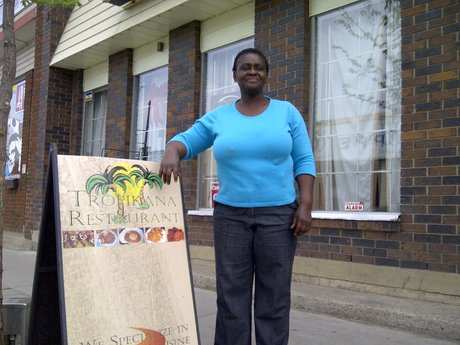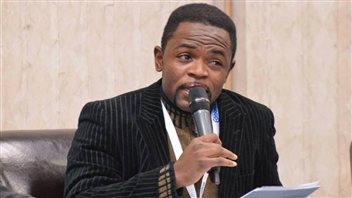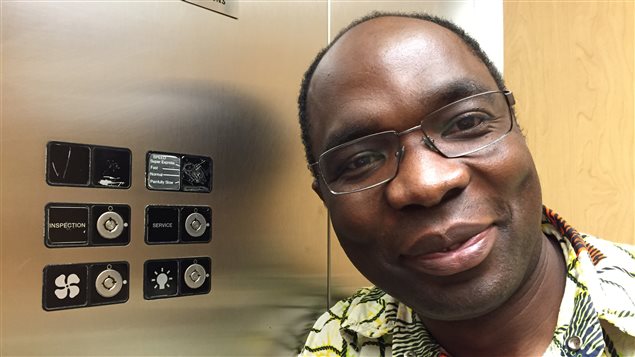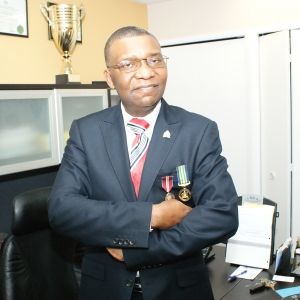In 2006, a proposition was made to change the name of the Association canadienne française de l’Alberta (ACFA) to the Association canadienne francophone de l’Alberta in order to acknowledge the Franco-Albertan community’s cultural diversity. While the suggested change was rejected, it prompted a discussion about the difficulties with which Franco-Albertan immigrants are faced. Already a cultural minority in the larger community, Francophone immigrants are often doubly isolated in that they neither identify with the Anglophone majority nor with the French-Canadian population (Mulatris 148-155). Many have experienced racism, further stratifying the Francophone community and discouraging community involvement (Mulatris 149-150; M’Pindou 35). Symptomatic of this isolation is a loss of pride in oneself and in one’s culture. Still more alarming is that immigrant youth are particularly sensitive to isolation: some have even turned to crime as a means by which to achieve a sense of belonging (M’Pindou 35-36). In order to prevent serious social problems, it is vital to understand and respect each cultural group’s contribution to society. Only then can we foster mutual respect, positive self-image and unity within the Francophone collective.
In light of the aforementioned issues, this project aims to heighten public awareness of Edmonton’s Congolese community. Drawing upon statistical data, historical accounts and personal testimonies, we begin by establishing a context for the community’s presence and survey common reasons for which immigrants choose to settle in Edmonton. We then discuss the role of organizations link Congo and Edmonton. Finally, we present a brief overview of some outstanding community leaders.
Circumstances leading to immigration and current demographic distribution
After decades of political instability, civil war erupted in the Democratic Republic of Congo in 1998, which prompted a wave of immigration (“Second Congo War”; Dikamba). The table below suggests the profound effects of the civil war:
Table 1 Congolese immigrants in Edmonton holding a Canadian citizenship
| Immigration period | Number of Canadian citizens originally from Congo | ||
| Before 1971 | 0 | ||
| 1971 to 1980 | 0 | ||
| 1981 to 1990 | 0 | ||
| 1991 to 2000 | 205 | ||
| 2001 to 2005 | 315 | ||
| 2006 to 2011 | 185 | ||
Source: Statistics Canada, 2011 National Household Survey, Statistics Canada Catalogue no 99-010-X2011026
While dictator Mobutu’s rise to power generated political tension as early as in the 1960s, the data reveal that immigration to Edmonton coincides with the start of the civil war: from 1990 to the period between 1991 to 2000 alone, the number of Congolese immigrants holding a Canadian citizenship rose from 0 to 205. This sudden increase in immigration can be explained by the fact that many individuals and families were unable to thrive in war-torn Congo and decided to immigrate to Canada. In addition, others had no other choice but to look for stability and safety abroad. There is also the case of refugees: due to the civil war many people were displaced and fled to other countries. It is through organizations like the United Nations High Commission for Refugees (UNHCR) that most came as refugees to Canada. Manitoba and Quebec, also saw a huge influx of Congolese refugees because of their highly visible francophone populations (Dikamba).
Immigration to Edmonton, specifically, was motivated by economic reasons, many Congolese families and individuals came to Edmonton after living in Montreal or in Europe. It was Edmonton’s strong economy, job market and untapped opportunities that attracted most immigrant families (Dikamba). Once in Edmonton, however, francophone immigrants faced a language barrier and they sought Edmontonian francophone establishments in order to fully participate in the community.
In summary, immigration was largely due to the political turmoil and instability caused by the civil war in Congo. Immigration towards Canada was a safe option for many families.
Community activities
Notwithstanding its recent establishment, the Congolese community is vibrant and continues to enrich Edmonton’s non-profit, cultural and artistic sectors.
Founded in the Democratic Republic of Congo in 2009 by Blaise Omalanga, the reforestation, agroforestry and community health association (RACHA) aims to promote sustainable resource management and health awareness. The organization has been successful in a number of areas, namely in building an elementary school and in providing education about the harmful effects of climate change and deforestation. Having established an office in Edmonton in January 2016, RACHA bridges Canada and Congo, which sets a precedent for the effective exchange of advanced management, research and pedagogical strategies between developed countries and developing countries (Omalanga).
Journalist Sandrine Griffon notes that many members of the Congolese community are practicing Catholics and attend Edmonton’s two francophone Catholic churches, Saint Joachim Church and Saint-Thomas-d’Aquin Church. Father Daniel Tshimbalanga, the presiding minister of Saint-Thomas-d’Aquin, is from the Democratic Republic of Congo (“Pasteurs”).
The grocery store Kasoa Tropical Foods carries a variety of Western African products, including popular Congolese foods and brands (“Products”). While Congolese restaurants have yet to emerge in Edmonton, many African restaurants offer traditional Congolese dishes. In particular, Tropikana Restaurant serves kwanga, a cassava-based dish and fufu, a mix of corn and cassava (“Democratic Republic of the Congo Cuisine”; “Tropikana Menu”). Another restaurant that offers Congolese fare is the Koultures Afro-Continental Restaurant, which prepares mikaté, a small donut that is also known as puff puff in other African countries (“Koultures Menu”; “Recette de Beignet”).

Charity Durowaa, the owner of Kasoa Tropical Foods and Tropikana, stands in front of her restaurant. Photo : Edmonton Journal.
With respect to arts and academics, the Institute for Western Canada French Heritage has recently accepted a series of Congolese archives for its collection. Directed by Dr. Paulin Mulatris, a professor at Faculté Saint-Jean, the archive project aims to document Edmonton’s African population. To date, the archive includes video testimonies and personal belongings that immigrants brought with them to Canada (“Des archives”). Some of these belongings are culturally significant, while others have personal value for their owners.
Notable figures
Dicky Dikamba, the general director of CANAVUA (Canadian Volunteers Associated in Action) is originally from Congo. Since childhood, he has been involved in volunteer work, as his father directs several non-profit organizations in Congo (Dikamba). He studied law in France, specializing in foreign rights defense, and his studies alerted him to the need to foster community outreach networks. This inspired him to create an accessible resource for Francophones once he moved to Edmonton (Dikamba). Amongst other activities, CANAVUA organizes a meals-on-wheels program, operates a food bank depot and offers class 7 driving courses in French and English (Yambayamba; “Programmes”). Beyond these services, CANAVUA also links their volunteers to other non-profit organizations in order to facilitate community connections and encourage volunteerism.

Dicky Dikamba, directeur général de CANAVUA. PHOTO : CANAVUA
Jean-Marie Yambayamba is a Radio Canada journalist living in Edmonton and originally from Congo. He has contributed a number of African and Canadian news reports for the show Tam-Tam, broadcasted by Radio Canada International. Well-rounded in both his interests and skills, he studied physics, mathematics and theology in France and in Québec. He arrived in Montréal in 1994 and moved to Edmonton in 2004, where he is active in volunteer work (“La Famille Yambayamba”).

Jean-Marie Yambayamba, a Radio Canada.
journalist. Photo : Radio Canada
Acting as the general director of Alliance Jeunesse-Famille de l’Alberta Society (AJFAS) since 1999, Luketa M’Pindou is a pioneer in the Francophone community and a voice for Edmonton’s youth. He completed his bachelor’s degree in management at the University of Montréal. He is also the recipient of several awards, namely the Queen Elizabeth II Diamond Jubilee Medal and the Alberta Centennial Medal (Passages Canada).

Luketa M’Pindou.
Photo : Passages Canada
While much work must still be done in order to increase the visibility of Edmonton’s Congolese community, our findings make it clear that it has much to offer to the city at large. Many members of the community strive for inclusion, share the richness of their culture and make an effort to welcome others.
We would like to thank Mr. Blaise Omalanga and Mr. Dicky Dikamba for sharing their personal testimonies. We would also like to thank Mr. Denis Lacroix from the University of Alberta as well as Ms. Hélène Guillemette and Ms. Cindy Garneau from the Institute for Western Canada French Heritage for assisting us with our research.
Lisa Grondin et Linda Gisenya (FREN 312)
Bibliography:
Mulatris, Paulin. (2009). “Francophonie albertaine et inclusion des nouveaux arrivants: post mortem à un débat sur un changement de nom.” Journal Of International Migration & Integration, 10(2), 145-158. Print.
M’pindou Luketa, Jacques. “La jeunesse congolaise dans la société canadienne.” L’Alberta et le
multiculturalisme francophone : témoignages et problématiques. Eds. Claude Couture et Josée Bergeron. Edmonton: University of Alberta Press, 2002. 33-36. Print.
“Second Congo War.” Wikipedia. Web. March 28, 2016.
Dikamba, Dicky. Personal Interview. March 23, 2016.
Canada. Statistics Canada. 2011 National Household Survey. Statistics Canada Catalogue np. 99-010-X2011026. Ottawa: Statistics Canada, 2011. Statistics Canada. Web. February 21, 2016.
Omalanga, Blaise. E-mail correspondance. March 13, 2016.
Griffon, Sandrine. “Présence congolaise à la FSJ. ” Le Franco, March 24, 2004. Web. March 27, 2016.
Paroisse Saint-Thomas-d’Aquin. “Pasteurs : L’historique de nos pasteurs.” Web. March 29, 2016.
“Products.” Kasoa Tropical Foods. Web. March 29, 2016.
“Democratic Republic of the Congo Cuisine.” Wikipedia. Web. March 29, 2016.
“Tropikana Menu.” Zomato.com. Web. March 29, 2016.
Koultures Afro-Continental Restaurant. “Koultures Menu.” Koultures.com. Web. March 29, 2016.
“Recette de Beignet Africain.” Recette Africaine. Web. March 29, 2016
“Des archives congolaises pour l’Institut du patrimoine.” Campus Saint-Jean, February 12, 2016. Web. March 29, 2016.
Dooley, Brian. “Saison 2015-2016 : Nouvelles œuvres, nouveaux partenaires, nouveaux départs!” L’Unithéâtre : 3. PDF file.
Bayon, Arthur. “Festival du patrimoine : les pavillons francophones mettent la main à la pâte.” Le Franco, August 6, 2014. Web. March 27, 2016.
“Programmes.” CANAVUA. Web. March 28, 2016.
L’Institut pour le patrimoine de la francophonie de l’Ouest canadien. “La famille Yambayamba.” Unclassified archives. March 21, 2016.
“Les expressions de Jean-Marie Yambayamba.” Le monde chez nous. Radio Canada. July 4, 2015. Radio.
Yambayamba, Jean-Marie. “Un cours en français pour les candidats au permis de conduire d’apprenti à Edmonton.” Radio Canada, February 27, 2014. Web. March 29, 2016.
Passages Canada. “Luketa M’Pindou.” Web. February 18, 2016.
